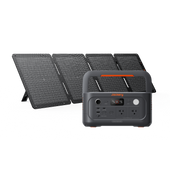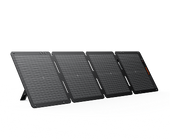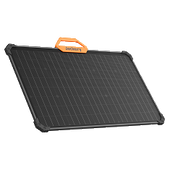Are Solar Panels Recyclable
Home solar panels are becoming a more popular option for using renewable energy because they provide a long-lasting and efficient way to create electricity. They are typically constructed of silicon and are laid out in a grid pattern on a supporting material to collect photons and trigger electric current. They contain no moving parts and hence require only a little upkeep.
In fact, you won't incur any costs after the initial purchase and setup fee. Solar energy is clean and free, allowing you to reduce your monthly energy bills while simultaneously benefiting the environment.
What Happens To Solar Panels at The End Of Their Life?
Solar panels must be appropriately disposed of when they reach the end of their useful life. This entails separating toxic substances such as cadmium and lead from the rest to keep them out of landfills. Several countries have passed legislation requiring solar panels to be disposed of in an environmentally responsible way. These laws may force producers to collect and get rid of panels at the end of their useful lives.
It's important to remember that a solar panel's lifespan depends on the quality of the materials, the environment to which it's exposed, and the maintenance and care you provide.
While most solar panel brands last 20-25 years, Jackery solar panels are designed to continue to produce electricity at decent efficiency beyond that time frame. As technology improves, we continue to redefine our products to increase efficiency and improve durability.
Can Solar Panels Be Recycled?

Solar panels are recyclable. True, waste from decommissioned solar panels provides chances to recover valuable resources and generate jobs.
Solar panels feature glass, silicon, aluminum, and plastic materials. Recycling keeps these materials out of landfills, saving space and reducing resource waste. But, like with any other electronic equipment, consider the expense of shipping and recycling your solar panels and the impact of the recycling activity on the environment.
If the solar panel is still producing a decent amount of electricity and the cost of recycling is too expensive, it is more cost-effective to keep it in service as long as possible. Most solar panels have a useful life of around 25-30 years much like Jackery solar panels, so it may not be worth recycling until the end of their service life.
However, if your solar panel is no longer producing electricity or you decide to replace it with newer technology, check for local recycling facilities that accept and dispose of electronic products safely and responsibly. These facilities are typically run by electronics manufacturers or waste management companies, and they will handle the recycling process for you.
In addition, recycling solar panels can create new jobs in the field of renewable energy. Recycled materials from decommissioned solar panels can be used to build new solar installations and reduce overall costs. This is a great way to create a circular economy and reduce carbon emissions.
Although recycling solar panels is still in its early stages, it is an important step towards creating a more sustainable energy future. By considering the cost of shipping and recycling your solar panels and exploring local disposal options, you can do your part to help protect our planet.
How To Recycle Solar Panels

Solar panel recycling entails dismantling the panel and sorting the glass, metal, and plastic components into proper recycling bins for processing. Many solar firms have collection and recycling programs for old solar panels. These initiatives gather the solar panels and transport them to a recycling center where the materials can be processed and repurposed.
Silicon-Based Solar Panel Recycling
Most of the solar panels on the market are crystalline silicone designs. They comprise an aluminum frame, copper wire, silicon solar cells, polymer layers, a back sheet, a plastic junction box, and glass. While the polymer layers protect the panel from the elements, they make disassembling and recycling difficult due to the high temperatures required to remove the glue.
However, several innovative companies are developing new technologies to make the recycling of silicon-based solar panels easier and more cost-effective. These solutions use a combination of chemicals, mechanical force, and low-temperature processes to gently disassemble the panels and separate the components for reuse or safe disposal.
Thin-Film-Based Solar Panel Recycling
Thin-film solar panels are made up of several layers of amorphous silicon, which is much thinner than the crystalized silicone used in traditional solar panels. This allows for higher efficiency and less material waste during production. However, it also makes recycling slightly more difficult due to the fragile nature of the thin materials.
In order to recycle thin-film solar panels, companies are developing specialized processes that use mechanical force and chemicals to dismantle the panel while keeping the components intact. The components can then be separated, cleaned, and reused in new products. In addition, some of the components can be recycled into other useful materials like copper wire or aluminum frames.
How Much Does It Cost To Recycle Solar Panels

Solar panel recycling costs vary depending on the size and type of solar panels and the quantity of material to be processed. In general, the cost of recycling one solar panel might range between $25 and $50. But large-scale recycling companies can offer lower prices. Some businesses provide free or subsidized programs, which can help reduce costs even further.
Customers can use this service to return their old solar panels free of charge, and the business will handle the recycling and disposal. Recycling solar panels can minimize the quantity of garbage transported to landfills and lower costs. This can help with resource conservation by reducing the amount of resources needed to manufacture new solar panels. It also aids in the creation of jobs, which boosts the economy.
The Future of Solar Waste Management
The International Renewable Energy Agency has estimated that the global value of reusable resources from aging solar panels is expected to reach $450 million. Additionally, with advanced recycling strategies in place, significantly less waste should end up in landfills.
Solar waste management is a huge opportunity, and the industry will soon move past traditional panel recycling to discover novel ways to reuse materials from outdated panels. Such initiatives are beneficial for both our environment and economy—it's essential that we invest in solar waste management if we want to guarantee sustainability.
The future looks bright for solar waste management and with continued innovation, we can look forward to a more sustainable world. As the industry matures, companies must continue to invest in efficient recycling technologies and find ways to reduce the environmental impact of solar panel production. With collaboration and dedication, we can ensure a brighter future for everyone.
Jackery is committed to reducing the amount of solar panel trash that ends up in landfills. More businesses can join this effort and help lessen our impact on the environment.
Conclusion
Solar energy is a reliable, sustainable energy source that can save cash and lessen the impact of our activities on the environment. Jackery solar panels are designed to deliver long-term, dependable electricity while reducing emissions and waste. We also offer a free solar panel recycling service to keep your old panels out of landfills. We can minimize waste, preserve resources, and protect the environment by recycling obsolete solar panels.
If you're ready to ditch the grid and embrace renewable energy, start by exploring our solar power products. Our portable, dependable, and effective outdoor solar utilities will provide you with the power you require wherever you are. Check our solar panel products for more information.
Disclaimer:
The runtime mentioned for appliances powered by Jackery is for reference only. Actual runtime may vary under different conditions. Please refer to real-world performance for accurate results.





































![[Add - on] Jackery Manual Transfer Switch for Explorer 5000 Plus - Jackery](http://www.jackery.com/cdn/shop/files/add-on-jackery-manual-transfer-switch-for-explorer-5000-plus-9017324.png?v=1754016782&width=170)
























































































Leave a comment